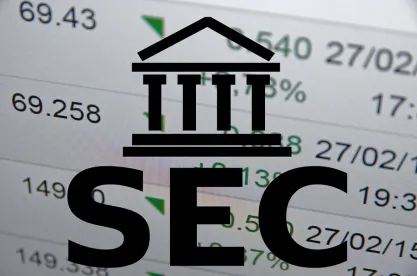On November 2, 2020, the Securities and Exchange Commission (SEC) voted to amend the framework for exempt offerings under the Securities Act of 1933, as amended (Securities Act). The amendments generally establish a new integration framework, increase the offering limits for Regulation A, Regulation Crowdfunding and Rule 504 offerings, implement clear and consistent rules governing certain offering communications and harmonize disclosure and eligibility requirements and bad actor disqualification provisions. The SEC believes these amendments will promote capital formation and expand investment opportunities while preserving or enhancing important investor protections.
In Depth
On November 2, 2020, the SEC amended its rules under the Securities Act to harmonize, simplify and improve the exempt offering framework. The framework has undergone a number of changes over time, which has resulted in a complex and confusing set of rules. The amendments aim to alleviate these difficulties for the benefit of entrepreneurs and emerging companies, as well as for investors and more seasoned companies.
Through the amendments, the SEC has:
-
Established a new integration framework;
-
Increased the offering limits for Regulation A, Regulation Crowdfunding and Rule 504 offerings and revised individual investment limits;
-
Implemented clear and consistent rules governing offering communications, including allowing certain “test-the-waters” and “demo day” activities; and
-
Harmonized disclosure and eligibility requirements and bad actor disqualification provisions.
New Integration Framework
When issuers use different private offering exemptions in parallel or in close time proximity, questions arise as to whether the offerings can be considered “integrated” for purposes of determining compliance with the exemptions. The amendments establish a new integration framework that sets forth a general integration principle in new Rule 152(a) and four non-exclusive safe harbors in new Rule 152(b), which are discussed below.
General Integration Principle: Under the general integration principle, two or more offerings will not be considered “integrated” if, based on the particular facts and circumstances, the issuer can establish that each offering either complies with the registration requirements of the Securities Act, or that an exemption from registration is available for the particular offering.
Where an issuer relies on an exemption that prohibits general solicitation to make an offer alongside a concurrent offering, Rule 152(a)(1) provides that the issuer must have a reasonable belief, based on the facts and circumstances, with respect to each purchaser, that the issuer (or any person acting on the issuer’s behalf) either: (i) did not solicit such purchaser through the use of general solicitation or (ii) established a substantive relationship with such purchaser prior to the commencement of the exempt offering where general solicitation is prohibited. To the extent that the issuer can satisfy either or both prongs, then the issuer may conduct the offerings concurrently without integration concerns.
For an issuer relying on an exemption that permits general solicitation to make a concurrent offering with another offer-exempt offering that permits general solicitation, Rule 152(a)(2) states that, in addition to satisfying the requirements of the exemption relied on, if the general solicitation offering materials for one of the offerings includes information about the material terms of a concurrent offering under another exemption, then the first offering must comply with all the requirements for, and restrictions on, offers under the exemption being relied on for such other offering, including any legend requirements and communications restrictions.
Non-Exclusive Safe Harbors: The amendments establish the following four non-exclusive safe harbors from integration in new Rule 152(b):
-
Any offering made more than 30 calendar days before the commencement of any other offering, or more than 30 calendar days after the termination of any other offering, will not be integrated with such other offering;
-
Any offer or sale made in compliance with Rule 701, pursuant to an employee benefit plan, or in compliance with Regulation S will not be integrated;
-
Any offering for which a registration statement is filed will not be integrated if it is made after: (i) a terminated or completed offering which did not permit general solicitation; (ii) a terminated or completed offering for which general solicitation is permitted that was made only to qualified institutional buyers and institutional accredited investors; or (iii) an offering that permitted general solicitation that terminated or was completed more than 30 calendar days prior to the commencement of the registered offering; and
-
Any offer or sale made in reliance on an exemption that permits general solicitation will not be integrated if made subsequent to any terminated or completed offering.
New Offering and Investment Limits
According to the SEC, approximately $2.7 trillion of new capital was raised through exempt offerings in 2019, of which just 0.05% was raised under Regulation A, Regulation Crowdfunding and Rule 504 combined. In an effort to encourage greater usage of these exemptions, the following amendments are being made:
Regulation A: The amendments raise the maximum offering amount under Tier 2 of Regulation A from $50 million to $75 million. Furthermore, the maximum offering amount under Tier 2 of Regulation A for secondary sales is being increased from $15 million to $22.5 million.
Regulation Crowdfunding: The amendments raise the offering limit from $1.07 million to $5 million. Additionally, the amendments revise the investment limits for investors by (i) removing investment limits for accredited investors and (ii) using the greater of their annual income or net worth when calculating the investment limits for non-accredited investors. The amendments also extend for 18 months the existing temporary relief providing an exemption from certain Regulation Crowdfunding financial statement review requirements for issuers offering $250,000 or less of securities in reliance on the exemption within a 12-month period.
Rule 504 of Regulation D: The amendments raise the maximum offering amount from $5 million to $10 million.
Revised Offering Communication Rules
Test-the-Waters Communications: The amendments provide that issuers are permitted to “test the waters” through the use of generic solicitation of interest materials. Under new Rule 241, an issuer is permitted to “test the waters” with general solicitation material prior to determining which exemption it will use. Additionally, under new Rule 206, a crowdfunding issuer can test the waters prior to filing an offering document with the SEC.
Demo Day Communications: New Rule 148 provides that certain “demo day” communications will not be considered a general solicitation if made in connection with an event sponsored by a college, university or other institution of higher education, a state or local government or instrumentality of a state or local government, a nonprofit organization or an angel investor group, incubator or accelerator sponsoring the seminar or meeting.
Other Amendments
Regulation Crowdfunding and Regulation A Eligibility: The amendments impose eligibility requirements on both issuers and investors. Under new Rule 12g5-1(a)(9), a crowdfunding issuer may exclude securities issued by a crowdfunding vehicle in accordance with Rule 3a-9 that are held by natural persons, but must include securities issued by a crowdfunding vehicle that are held by investors that are not natural persons. Furthermore, under the amendments, the ability of issuers that are delinquent in their Exchange Act reporting obligations to use Regulation A is now restricted.
Other Improvements to Specific Exemptions: The amendments also conform the requirements of certain regulations. For example, Rule 506(b) was amended to require that the same financial information provided to investors in Regulation A offerings be provided to non-accredited investors in private placements relying on the Rule 506(b) exemption. Additionally, the amendments made bad actor disqualification provisions consistent amongst Regulation D, Regulation A and Regulation Crowdfunding.
The amendments to the exempt offering framework will be effective 60 days after publication in the Federal Register, except for the extension of the temporary Regulation Crowdfunding provisions, which will be effective upon publication in the Federal Register.







 />i
/>i

